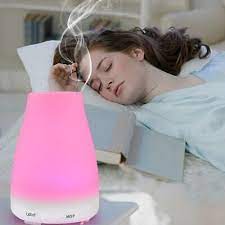
Everyone has experienced the power of aromas to evoke recollections of past experiences. You may walk into a room and smell something cooking, or the scent of a perfume or cologne a loved one wore years ago, and memories just suddenly surface. This happens because the olfactory system is the only sensory system that has direct projections to the limbic system, which is crucial for memory and emotion. This unique access to the brain’s learning and memory systems may allow the olfactory system to prevent or reverse the deterioration of these systems via direct neural activation. In light of this, the UC Irvine Center for the Neurobiology of Learning and Memory conducted a study earlier this year [https://doi.org/10.3389/fnins.2023.1200448] to learn what would happen to the cognitive abilities, especially memory, of older adults who were exposed to various natural oil fragrances for a six-month period.
The participants, ages 60 to 85, had no memory impairment. They were each given a diffuser and seven cartridges, each containing a single and different essential oil, which activated for two hours as they slept. Individuals in the control group had the same experience with minimal amounts of aromatherapy. Those who were exposed to the maximum fragrance output from the diffusers performed much better on a word list test commonly used to assess memory, a remarkable 226% increase in memory performance as compared to the control group.
This study confirms the direct link between the olfactory sense and the brain’s memory circuits, underscoring the potential of aromatherapy as a non-invasive technique for strengthening memory and potentially deterring dementia. Participants reported sleeping more soundly, which is another benefit, since restorative sleep is essential for brain health. Also, imaging revealed better integrity in a brain pathway which connects the medial temporal lobe to the decision-making prefrontal cortex, a pathway that normally becomes less robust with age.
The researchers say the results of their study confirm what scientists have learned about the connection between smell and memory, and they hope their finding will lead to more investigations into olfactory therapies for memory impairment. A product based on their study and designed for people to use at home is expected to come onto the market this fall. The study was supported by Procter & Gamble.